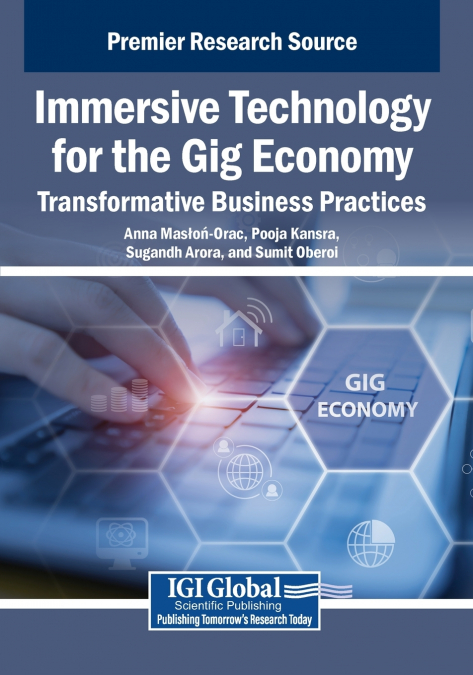
Immersive technology, such as virtual reality (VR), augmented reality (AR), and mixed reality (MR), reshapes the gig economy by enabling transformative business practices that redefine how work is performed, delivered, and experienced. As gig workers rely on digital platforms for employment, immersive tools provide new ways to train, collaborate, and interact with clients across sectors. From virtual onboarding sessions and AR-guided task assistance to freelance marketplaces, these technologies enhance productivity, engagement, and accessibility. By bridging the gap between physical and digital workspaces, immersive technology can improve operational efficiency while expanding opportunities within the evolving landscape of flexible, on-demand labor. Immersive Technology for the Gig Economy: Transformative Business Practices examines the emergence of the gig economy within organizational developments. It highlights new models developed to handle global concerns affecting all businesses, focusing on managing information and resources that benefit entrepreneurs. This book covers topics such as logistics, automation, and sustainable development, and is a useful resource for business owners, economists, engineers, academicians, researchers, and scientists.